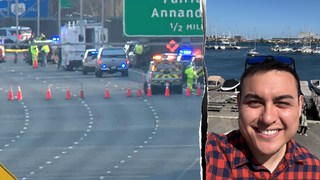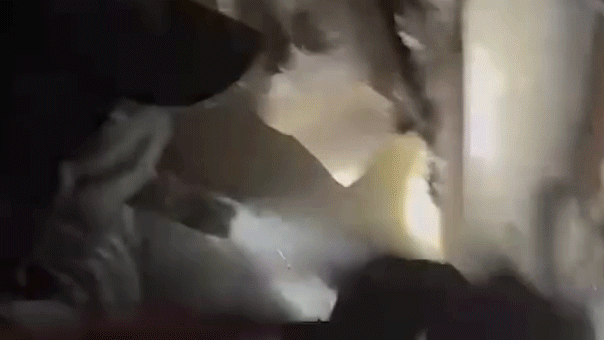WASHINGTON – A third nonprofit group will reject nearly $400,000 in federal grant money intended to fight violent extremism under President Donald Trump's administration amid concerns over his rhetoric, The Associated Press has learned. The decision is the latest to imperil U.S. government efforts to frustrate attempts by extremist groups to recruit would-be terrorists and discourage acts of violence.
In a private message to donors reviewed by the AP, Unity Productions Foundation of Potomac Falls, Virginia, said it would decline its grant of $396,585 to produce educational films challenging narratives supporting extremist ideologies and violent extremism "due to the changes brought by the new administration."
The Obama administration in its final days had awarded about $10 million in such grants to fight violent extremism to 31 nonprofits, schools, community organizations and municipalities through the Homeland Security Department.
The foundation said it had planned to use the money to produce videos of Muslim scholars voicing opposition to terrorism and show Muslims engaged in social justice causes benefiting American society.
The director of outreach for Unity Productions Foundation, Daniel Tutt, said the group was not prepared to publicly announce its decision but did not dispute the authenticity of the message to donors.
"We are monitoring the situation as it evolves, and we're just paying close attention to what changes may take place, and based on circumstances on the ground and with the program, and the possible name change that's going on, there's lots of rumors," Tutt said.
Two other nonprofits previously said they were rejecting grants they had already been awarded under the program because of concerns that it could damage their credibility or come with uncomfortable strings attached. Many worry the Trump administration plans to change the program to focus on "radical Islamic terrorists" instead of all violent extremism.
Two more groups said they would strongly consider rejecting their grants if the Trump administration targets Muslim extremists and not other groups.
Leaders Advancing and Helping Communities in Dearborn, Michigan, said last week it was turning down $500,000 for youth development and public health programs because of the "current political climate." Ka Joog, a leading Somali nonprofit in Minneapolis rejected nearly $500,000 for its youth programs.
The nonprofit Washington-based Muslim Public Affairs Council was awarded $393,800 and has been working on a new intervention program that brings teams providing social services, mental health counseling and religious educators to communities across the country. Its leadership said the council would carefully review any change to the program, especially if it were to require them to fight their own religion.
The board for the Islamic graduate school Bayan Claremont in California plans to review the language of its $800,000 award before accepting any money to be sure it does not place additional restrictions or impositions on them.
Trump has endorsed what he describes as extreme vetting and ordered a temporary ban on visitors from seven predominantly Muslim countries.
Charities that already have worked with U.S. government agencies, including the CIA, Justice Department and Homeland Security Department, said they were reacting to discussions within the Trump administration to exclusively target "radical Islamic terrorists" under a U.S. program to counter violent extremism.
The Homeland Security Department did not immediately respond to a request for comment.
A U.S. official with knowledge of the discussions said the Trump administration has been discussing changing the Obama administration program's name, established as a presidential strategy in 2011, to some iteration of "countering Islamic extremism." The official spoke on condition of anonymity because this person was not authorized to speak publicly by name.
Most of the 31 federal grants were promised to municipalities, but some were directed to nonprofit groups such as Life After Hate Inc. in Chicago, which received $400,000 for its work with former white supremacists — a large portion of which will ago to a partner group to work with individuals inspired by al-Qaida or the Islamic State group.
The U.S. official said it was unclear whether groups such as Life After Hate would continue to receive funding or be included in any future program.
The grants have not yet been distributed and paperwork is still being drawn up.
__
Follow Tami Abdollah on Twitter at https://twitter.com/latams.








































